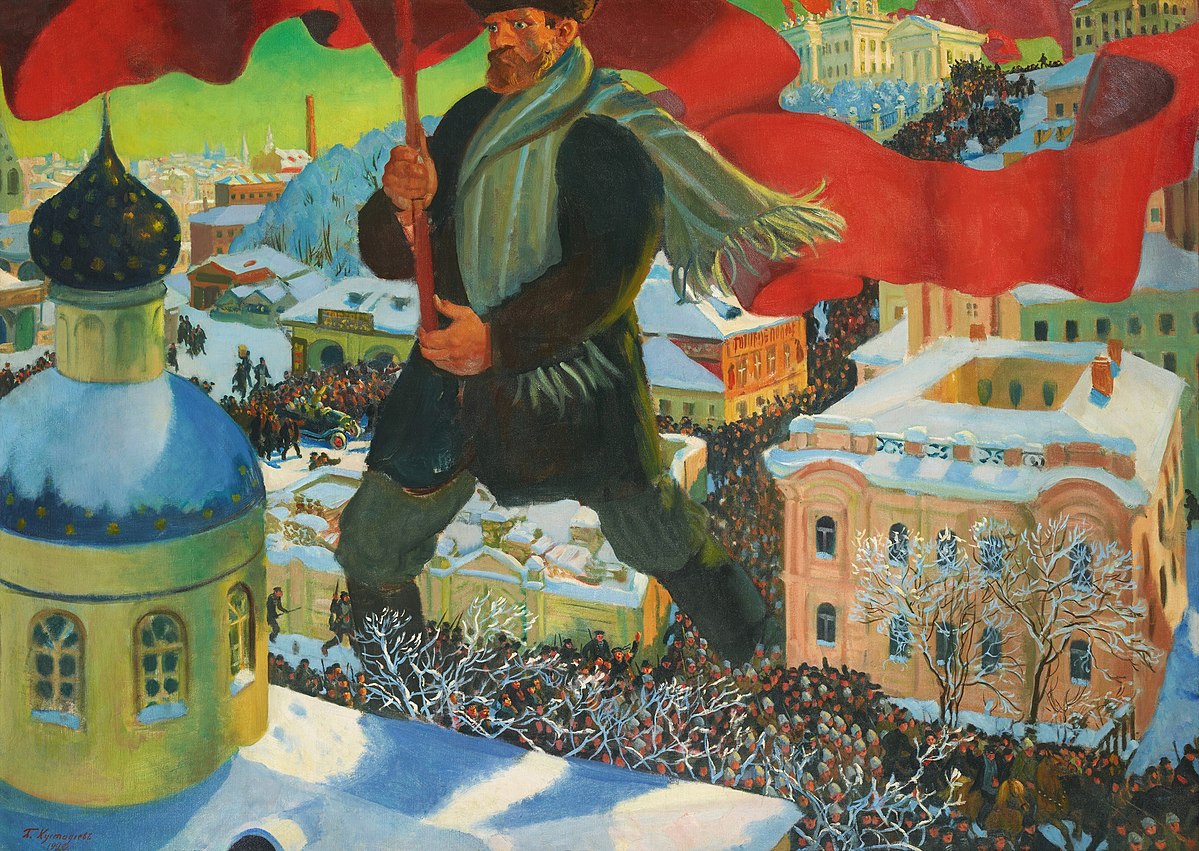The October Revolution came to be one of the most notable events of the 20th century, with major repercussions for the political map of Europe. As the second phase of the larger Russian Revolution of 1917, the insurrection which took place on 25 October [7 November]* in Petrograd (modern day Saint Petersburg) resulted in the Bolshevik's seizure of power and subsequent establishment of the world's first communist state.
In 1917, Russia witnessed significant changes on a political level. The February Revolution brought about an abrupt end to the centuries-old rule of the Romanov dynasty with the forced abdication of tsar Nicholas II (who would later be executed). As a consequence, the so-called dual power solution was implemented, with the command of the state being divided between the Petrograd Soviet Workers' and Soldiers' Deputies and the provisional government. The escalating crisis within Russian society caused by the poor conditions of living, food shortages and mass unemployment, was only aggravated by the decision made by the provisional government to continue fighting the war against the Central Powers. Therefore, mass demonstrations began to take place whose leadership was often assumed by the Bolsheviks. Acknowledging the opportunity to take power, the Revolutionary Military Committee was born within the Petrograd Soviet, which planned to occupy strategic locations in the city.
On the day of 25 October [7 November], the Bolsheviks decided to make their move and led the uprising against the provisional government in Petrograd. The Red Guards took control over all major government facilities, including the railway stations, post and telegraph, with little to no opposition. Lenin announced a proclamation called "To the citizens of Russia!", in which he declared the seizure of power by the Military Revolutionary Committee. At night, the assault on the Winter Palace in Petrograd was launched. The insurgents surrounded the palace and some of them even managed to get in. The Bolshevik forces gave an ultimatum to surrender to the then trapped and practically defenseless members of the provisional government, who, ultimately, agreed to give up their powers.
While looking back at the 20th-century history, few events have been mythicised to such an extent as the October Revolution. This can be, in part, attributed to Sergei Eisenstein's 1928 film reenactment of the events, October, which helped perpetuate the image of a bloody struggle in the Winter Palace with thousands of casualties. Moreover, this image was further reinforced by the official Soviet historiography. In reality, the October Revolution was a small-scale event, with no blood shed during the 'storming' of the Winter Palace.
In accordance with the communist ideology, the October Revolution – later also known as the Great October Socialist Revolution – destroyed an entire social system and replaced it with a better society, far superior than anything that had existed before. As later events have shown us, this proved to be a dangerous utopian vision. The October 1917 moment marked the beginning of 70 years of rule of communism in Central and Eastern Europe, which would only come to an end with the events of 1989 and the dissolution of the USSR in 1991.
by Cătălina Vrabie
*October Revolution actually started in November 1917. Its name derives from an Old Style calendar used at the time in the Russian Empire. In this article Old Style dates are accompanied by the New Style dates placed in brackets.
Bibliography:
Figes, Orlando, A people's tragedy. A history of the Russian Revolution, Penguin, 1996
S.A. Smith, The Russian Revolution. A very short introduction, Oxford University Press, Oxford, 2002
